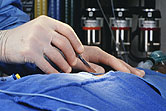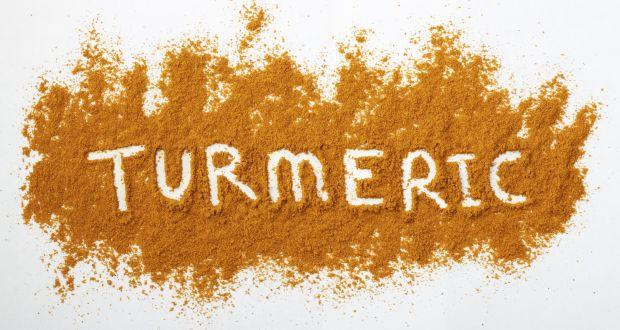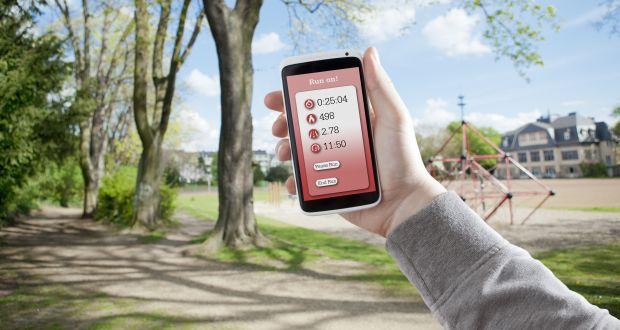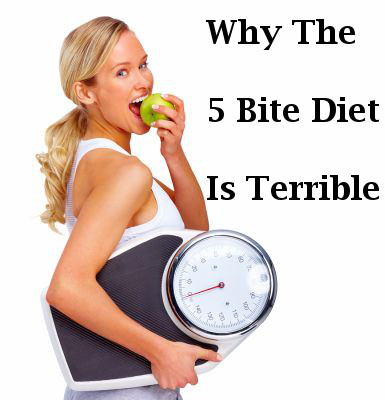Why We're Always Hungry
When I was growing up, in the 1970s, my mother used to joke that our car had a mind of its own. Every time we drove near the Carvel store in town, it would mysteriously guide us to the parking lot. "I can't control the car! It wants ice cream!" my mom would say as she pretended to struggle with the steering wheel. Mom loved her soft-serve, but we didn't stop there often. Ice cream was a treat we had only once in a while.
Today I can have ice cream wherever and whenever I want, and I don't have to make a special trip to Carvel to get it. I can buy it, or any other high-calorie, high-fat snack at the gas station and vending machines -- even my local drugstore (it's just one aisle away from the diet aids section). At the office supply store I can stock up on paper and ink cartridges as well as candy and potato chips. When I go to the pet store to buy treats for my dog, I can grab a bar of chocolate for myself at the checkout counter. Even my gym sells food! Um, what's the point of sweating through a Zumba class if the brownie-like protein bar I eat afterward has more calories than I just burned?
With so much food constantly in our face, it's no wonder that many of us are grazing all day long. Americans eat an average of 570 calories more per day than they did in the 1970s, largely due to constant eating, according to research from the University of North Carolina at Chapel Hill. "People have snacks with them at all times -- in their car, at their desk, in their purse," says study coauthor Barry Popkin, PhD. "We don't even know what hunger feels like anymore."
The health consequences aren't pretty. Think about it: Every time you load up on empty-calorie snacks, it means you're not eating foods that provide vital nutrients to give you energy (complex carbs), help you feel full (protein, fiber), and help prevent disease (a whole range of vitamins and minerals). Chronic snacking can also make it harder to lose weight.
The Psychology of Mindless Eating
Snacking isn't inherently bad; the problem is that we're not doing it right. "If people were reaching for real food with fiber, it would fill them up," Popkin points out. Instead, we tend to munch on sweet, high-carb snacks -- some of which contain nearly as many calories as a meal. These foods throw off your hunger cues big time, since they give you a quick sugar rush, then make you crash a short time later. The result? You crave another hit of the sweet stuff to feel better, and the cycle repeats itself.
The fact that snacks are available everywhere doesn't help either, because now it's socially acceptable to eat no matter where you are: walking down the street, waiting in line at the post office, during meetings, on planes, trains, and automobiles. This is mindless eating at its sneakiest. "It's a combination of a lack of awareness and environmental triggers," says Michelle May, MD, the author of Eat What You Love, Love What You Eat: How to Break Your Eat-Repent-Repeat Cycle. "The car wash is boring. There's a rack of candy bars -- suddenly, there's something enjoyable to do!"
These food-place associations are what Cornell University eating behavior expert Brian Wansink, PhD, calls "mindless eating scripts" -- those moments throughout the day when we eat out of habit, not hunger. "The most common one is eating on the way to work or on the way home," Wansink explains. "These scripts get reinforced by repetition."
Maybe your script is a doughnut on the way to work or a pack of cookies on the way home -- fillers between real meals that don't fill you up but will make you fat. And there's no denying that these foods can make you feel good. "We're wired neurologically to crave food that's high in fat, salt, and sugar," explains David Kessler, MD, author of The End of Overeating. "Snacks like ice cream and potato chips taste good but they also activate the pleasure centers in our brains."
Sometimes that blissful feeling becomes connected to a happy memory, says Dr. Kessler, which may give a particular food a powerful emotional appeal. That explains my relationship with soft-serve ice cream: Yes, it's delicious, but it also reminds me of those special days with my mom.
People also connect snacks to specific places where they simply have to have that food. Some associations are the result of conditioning -- think popcorn at the movies and hot dogs at a baseball game -- while others develop seemingly out of nowhere. I polled my friends and family, who sheepishly admitted their own strange links between a particular snack and place. Lavetta buys Twizzlers whenever she goes to FedEx. "It gives me something to do while I'm waiting in line," she says. My sister Amanda gets a pack of cupcakes at gas stations. And Diane always picks up a bag of cheese-filled pretzels at airports. "I have to fly a lot for work and I won't get on the plane without them," she says. "It's a habit I've had for years -- and I have no idea how it even started."
Afraid to Be Hungry
The first step toward breaking the cycle of mindless eating is to ask yourself, Am I really hungry right now? Because chances are, you're not. "Our bodies are designed to exist among scarcity, but we're constantly surrounded by food," says Dr. May. "As a result, we've learned to ignore what it means to feel full. We're choosing food for pleasure but then not eating in a way that gives us pleasure -- walking down the hallway or scarfing it down in the car."
I've certainly experienced this phenomenon, which happens a lot now that I have a 17-month-old daughter, Bella. Like most new moms, I'm busy and tired all the time so I'm putting less thought into what, where, and when I eat. I find myself grabbing a muffin (my second breakfast) at the shop conveniently located next to the subway on the way to appointments in the city. I crave a sweet snack around 4:00 in the afternoon as well -- not necessarily because I'm hungry but because it's soothing. And for the five minutes it takes to inhale a double-fudge brownie on my walk home to relieve the babysitter, I do feel better. But just a short time later I'm my old exhausted self again.
Since our impulses and cravings are so often unconscious, the step toward changing them is to make them conscious. "If you look at a bag of chips and see that it's filled with fat and salt, and then think, 'That isn't going to sustain me,' you can change how you value those chips," says Dr. Kessler. When Dr. May has a craving for a cookie or candy bar, she thinks about whether an apple would satisfy her instead. "If I'm really hungry, it will," she says. But sometimes, she ends up deciding that she does want the cookie -- and that's okay, too.
I decided to try out her trick and I was happy to discover that it really worked. Last week, instead of buying a brownie in the afternoon I took my daughter and our dog to the park for a 45-minute power walk. I wound up feeling more energized than I have in months; now I take a walk every afternoon. "The best way to rewrite a script is to replace it with a healthier one," Wansink explains. But I will stick to a few of my old habits. In fact, I can't wait until Bella is old enough to understand jokes, so I can pretend that our car needs soft-serve ice cream, just like my mom did. After all, some scripts are sacred.
-
Great Ideas To Help You Lose Weight And Enjoy Life
TIP! Staying active is one great way to shed the pounds. You
-
9 Weight Loss Traps You Should Avoid At All Costs
Did you know that Americans spend $60 billion annually on diets, diet
-
How to Lose Weight and Stay Healthy With a Disability
Many people find that weight can slowly creep on to their bodies. If
-
Eating Disorders
Somehow we are failing to teach our children that they are be
-
World Breastfeeding Week 2016 – Weight Loss Tip #151– Breastfeed to lose weight
-
Walking To Lose Weight -A Simple But Effective Method
Walking to lose weight is a simple but powerful method that can
- DON'T MISS
- Use These 15 Proven Tips To Get Rid Of Your Belly Fat
- Reasons Why We Fail In Weight Loss
- omega fatty acids
- Tips For Maintaining A Low Carb Diet
- 12 Eating Mistakes That Are Making You Pack On The Poundsvar zeus = zeus
- Healthy Weight Loss Advice - The Power Of Goals
- What Is Your Weight Destiny?
- How to Lose 5 Kilograms in One Week
- Coronary Heart Disease, the Short Version
- Successful Weight Loss - Losing Weight After Pregnancy




